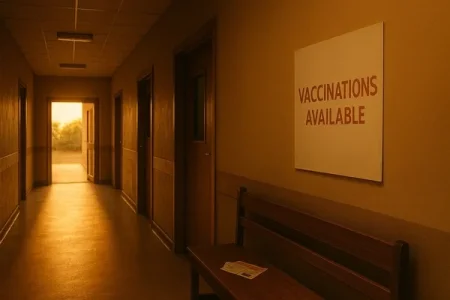
Nigeria's health economics create difficult choices for families, who must balance immediate costs against long-term protection. Two children have died from diphtheria at the University of Benin Teaching Hospital, illustrating how health outcomes intersect with resource availability, geographic access, and timing. The outbreak has prompted emergency responses from WHO and UNICEF, revealing both the challenges in routine healthcare delivery and the international support available when health emergencies escalate.
Understanding Nigeria's health wealth dynamics helps families navigate protection options within their means and circumstances.
- Free diphtheria vaccines are available at primary healthcare centres, although access depends on location, transportation costs, and the centre's operating schedules.
- Early symptom recognition (persistent sore throat, fever, difficulty swallowing) enables treatment seeking when financially and geographically feasible.
- Emergency antitoxin treatment requires hospital admission and specialised care, with costs varying significantly between public and private facilities.
- Communities can request emergency vaccination campaigns from state health authorities, leveraging collective advocacy for improved local acces.s
How can Nigerian families better balance health investments with other essential needs? What innovations could make preventive healthcare more economically accessible to families across different income levels?




